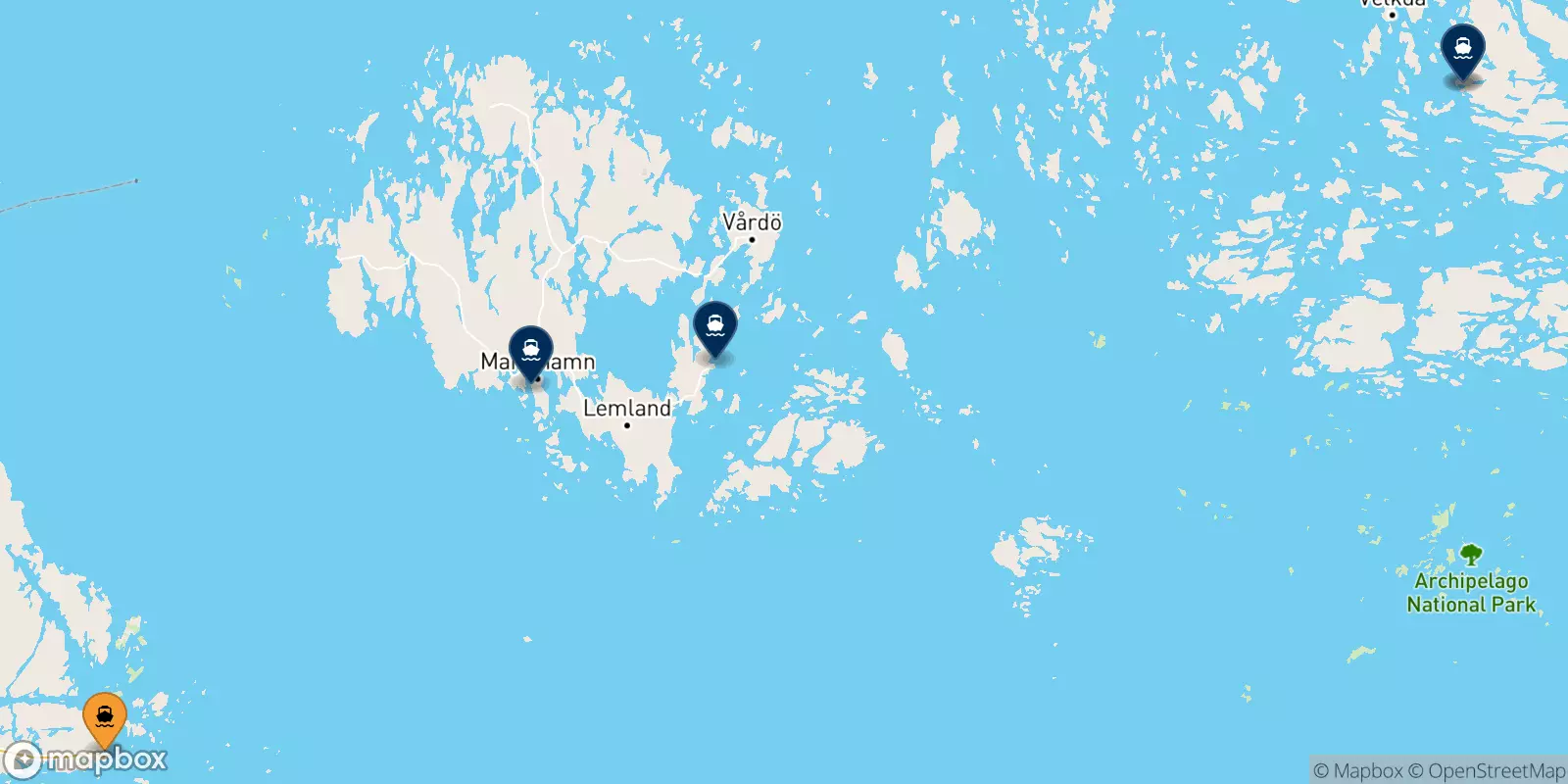Ferries from Kapellskär to Finland
Offers, Timetables and Prices


Are you considering a trip to Finland? Don't miss out, search for the best ferry from Kapellskär to Finland by checking NetFerry online booking system. This site allows you to compare all the info for your trip to Finland from Kapellskär such as tariffs, times and duration of the crossing.
The Kapellskär Finland lines are covered by 2 different sailing companies (Tallink Silja Line and Finnlines) who offer a total of 58 weekly connections with traveling times ranging between 2 hours 15 minutes and 11 hours (mostly morning departures). This line allows you to transport cars, motorbikes, campers and trucks - when boarding, simply follow the instructions at the departure port. Seating and accommodation type on board differ according to travel time, the fastest ships, that provide crossings during the day, only offer deck space on regular seats, while night ferries or ferries with travel times exceeding 6 hours, offer a variety of cabin options.
If you leave it too late to book, you risk loosing your seat on board! Book now in just a few simple steps.

The port of Kapellskär is located on the Baltic Sea, 90 kilometers from Stockholm. It provides passenger ferry connections to Finland and other locations in Sweden and Estonia. The port has five piers that serve the various destinations. The passenger terminal offers services including a waiting room, restaurant, ATM, assistance and disabled access points. How to reach the port of Kapellskär By car, you can park in a large paid parking area accessible from entrance B, cars can remain parked here for eight consecutive days at a time. Coming by car from Stockholm via the E18 to Norrt&a... [More information]
Address: Norrtälje SO, Sweden
Directions: Google Map @ Kapellskär, port
Finland, the country of the famous Northern Lights, extends over the Baltic Sea on a vast peninsula characterized by many small islands. Most of the population lives in the southern part of the country and the first populations that settled here belonged to the Lapponi groups. History Lapponi and Finni divided the Finland until 1154, when Swedish rule began. Wars and revolutions have seen Finland conquered and then divided between Sweden and Russia.The Russian empire ruled until 1917, when it became independent, even though it was still obligated by the USSR until the 1947 Treaty of Paris. In ... [More information]